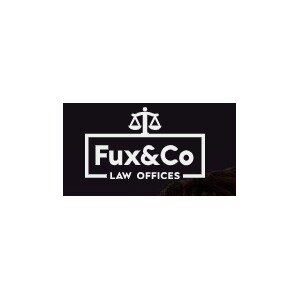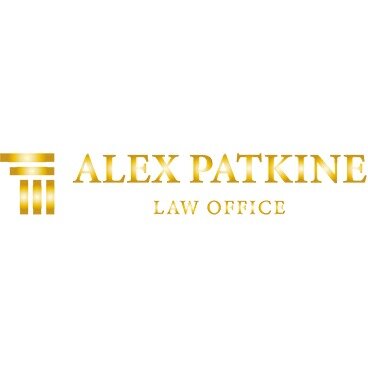Best Financial Services Regulation Lawyers in Tel Aviv
Share your needs with us, get contacted by law firms.
Free. Takes 2 min.
List of the best lawyers in Tel Aviv, Israel
About Financial Services Regulation Law in Tel Aviv, Israel
Financial Services Regulation in Tel Aviv, Israel, encompasses a wide array of laws and guidelines that govern the financial sector. These regulations are designed to ensure the stability and integrity of the financial system, protect consumers, prevent financial crime, and promote competition. Key regulatory bodies include the Bank of Israel, the Israel Securities Authority, and the Capital Market, Insurance, and Savings Authority. Financial institutions in Tel Aviv are subject to stringent compliance requirements, which include everything from anti-money laundering practices to consumer protection standards.
Why You May Need a Lawyer
There are several scenarios where seeking legal advice on financial services regulation can be crucial:
- Starting a Financial Business: Entrepreneurs establishing banks, investment firms, or other financial organizations in Tel Aviv need to navigate complex regulatory requirements.
- Compliance Issues: Financial institutions may require legal assistance to ensure they are in compliance with ever-evolving regulations, including those related to consumer protection and anti-money laundering.
- Regulatory Investigations: If a company faces scrutiny or investigation by regulatory bodies, a legal expert can help manage the process and advocate on their behalf.
- Dispute Resolution: Legal disputes pertaining to financial services, whether involving customers, regulatory bodies, or other businesses, may require professional legal intervention.
Local Laws Overview
Tel Aviv, as a major financial hub, adheres to Israel's financial regulatory framework, characterized by several key laws and regulations:
- The Banking Ordinance: Governs the establishment and operation of banks and financial companies, focusing on prudential supervision.
- The Securities Law: Provides the foundation for regulating public offerings, licensing entities in the securities market, and enforcement against misconduct.
- The Investment Advice Law: Regulates the provision of investment advice, investment marketing, and portfolio management.
- Anti-Money Laundering Legislation: Imposes stringent obligations on financial entities to prevent, detect, and report money-laundering activities.
Frequently Asked Questions
What is the role of the Bank of Israel in financial regulation?
The Bank of Israel is tasked with maintaining financial stability, supervising banking institutions, and implementing monetary policy.
What steps must new financial businesses take to ensure compliance?
New businesses must obtain the necessary licenses, integrate compliance programs addressing local and international laws, and may consult legal professionals to ensure all regulatory obligations are met.
Are foreign businesses subject to the same financial regulations as local companies?
Yes, foreign businesses operating in Israel are subject to Israeli financial regulations, although they may encounter additional requirements pertinent to cross-border activities.
How can I report a financial institution suspected of illegal activities?
Suspected illegal activities can be reported to the appropriate regulatory body, such as the Israel Securities Authority, or through dedicated anonymous whistleblower channels.
What are the penalties for non-compliance with financial regulations?
Penalties can include substantial fines, revocation of licenses, and in severe cases, criminal charges against individuals responsible for the breaches.
Is financial regulation applicable to crypto-assets in Tel Aviv?
Yes, financial regulation extends to crypto assets, with specific guidelines and requirements enforced by the Israel Securities Authority.
How are consumers protected under financial service regulations?
Consumers are protected through laws that mandate transparency, fair treatment, and the secure handling of personal and financial data.
What are the key compliance areas for banks?
Key compliance areas include anti-money laundering, customer due diligence, data protection, and transparency in interest rates and fees.
How often do financial regulations change?
Financial regulations can change frequently in response to new economic conditions, technological innovations, and global standards. Staying informed is crucial for compliance.
Can legal advice aid in reducing compliance costs?
Yes, legal advice can help businesses streamline their compliance processes, thus potentially reducing costs and mitigating risks associated with regulatory breaches.
Additional Resources
For further resources on financial services regulation in Tel Aviv, consider the following:
- The Bank of Israel's official website provides information on banking regulation and policy.
- The Israel Securities Authority offers guidance on securities regulation.
- The Ministry of Finance provides data on financial services legislation.
- Legal firms specializing in financial services can provide tailored advice and services.
Next Steps
If you require legal assistance in the field of financial services regulation, consider the following steps:
- Identify Your Needs: Clearly define the specific area where you need legal support, be it compliance, dispute resolution, or business establishment.
- Research Qualified Lawyers: Look for lawyers or firms that specialize in financial services regulation, with experience in handling cases similar to yours.
- Schedule Consultations: Arrange appointments to discuss your needs and evaluate the expertise and approach of potential legal advisors.
- Engage Legal Services: Once you've identified a suitable lawyer, engage their services to navigate the regulatory landscape efficiently and effectively.
Lawzana helps you find the best lawyers and law firms in Tel Aviv through a curated and pre-screened list of qualified legal professionals. Our platform offers rankings and detailed profiles of attorneys and law firms, allowing you to compare based on practice areas, including Financial Services Regulation, experience, and client feedback.
Each profile includes a description of the firm's areas of practice, client reviews, team members and partners, year of establishment, spoken languages, office locations, contact information, social media presence, and any published articles or resources. Most firms on our platform speak English and are experienced in both local and international legal matters.
Get a quote from top-rated law firms in Tel Aviv, Israel — quickly, securely, and without unnecessary hassle.
Disclaimer:
The information provided on this page is for general informational purposes only and does not constitute legal advice. While we strive to ensure the accuracy and relevance of the content, legal information may change over time, and interpretations of the law can vary. You should always consult with a qualified legal professional for advice specific to your situation.
We disclaim all liability for actions taken or not taken based on the content of this page. If you believe any information is incorrect or outdated, please contact us, and we will review and update it where appropriate.

















